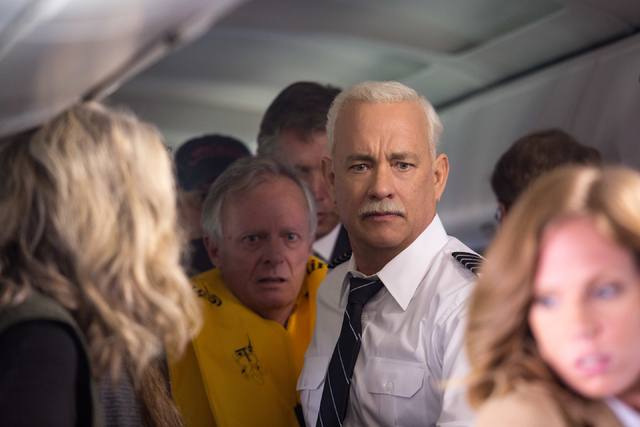Hero Sully Sullenberger makes a strong argument against ageism

It is the best argument ever made against ageism.
Something Chesley “Sully” Sullenberger said after he successfully executed an emergency water landing of US Airways Flight 1549 in New York City’s Hudson River on Jan. 15, 2009 — a maneuver that allowed all 155 passengers and crew aboard the aircraft to survive after birds disabled the plane’s engines.
“One way of looking at this might be that for 42 years, I’ve been making small, regular deposits in this bank of experience, education and training. And on January 15 the balance was sufficient so I could make a very large withdrawal.”
Yes, what this heroic baby boomer born in 1951 told news anchor Katie Couric should never be forgotten by young or old, by employers or the courts.
No doubt about it: Experience counts. Big time.
And yet many boomers believe discrimination — particularly when it comes to hiring men and women with decades of valuable, purposeful experience — exists. Big time.
I’m not talking about individuals who are burned out, who hurt an organization with their complacency. I’m talking about people who use their experience to become better at what they do, just as Sullenberger did.
According to three surveys done by AARP since 2002, two-thirds of respondents said they experienced age discrimination. As the recent Great Recession deepened and unemployment grew, boomers said ageism did, too.
The Equal Employment Opportunity Commission is backed up on age discrimination complaints. Long-term unemployment, categorized as being jobless for at least 27 weeks, has been worse for those older than 55 in the past decade.
Just recently, JK Sheinberg, who worked at Apple for more than 20 years and the engineer credited with persuading Steve Jobs to move the Mac to Intel processors, tried to re-enter the workforce after retiring at the age of 54.
The job he interviewed for — like many retirees he realized he still needed to be productive — would have been at the Genius Bar, a tech support station at Apple retail stores handled by men and women with substantial background in the products’ software and hardware.
Though interviewers told him they’d get in touch, they didn’t. Several pundits have called it evidence of ageism. It’s certainly doubtful anyone interviewed could have been as qualified or more qualified.
While lawyers admit it’s always hard to prove age discrimination, it’s also true that in 2014 the average age of employees at Apple was 31. And it’s also true Silicon Valley isn’t a fan of people with advancing age.
In 2007, Facebook CEO Mark Zuckerberg told an audience at Stanford: “Young people are just smarter.”
That ageism isn’t seen as harmful as racism or sexism — the best workplaces have a generational mix committed to excellence — is evident by the dearth of criticism Zuckerberg received after unleashing his ignorance and bigotry.
During the Great Recession, I knew men and women — all of them award winners who made significant diferences in their communities — who lost positions in TV, radio, newspapers, public relations. Younger people making less money with virtually no experience would replace them.
When they applied for full-time jobs, their experience — ranging from exposing corruption to helping nonprofits raise funds to help people help themselves — was seen as a negative.
Communities, not just the media professionals, were hurt.
When Sullenberger testified before Congress in 2009, he testified the airlines’ penchant for saving money by hiring pilots with little experience endangered the public.
“There’s simply no substitute for experience in terms of aviation safety,” he said.
And there’s no substitute for valuable, purposeful experience in a country committed to excellence.
Paul Harasim’s column runs Sunday, Tuesday and Friday in the Nevada section and Monday in the Health section. Contact him at pharasim@reviewjournal.com or 702-387-5273. Follow @paulharasim on Twitter.